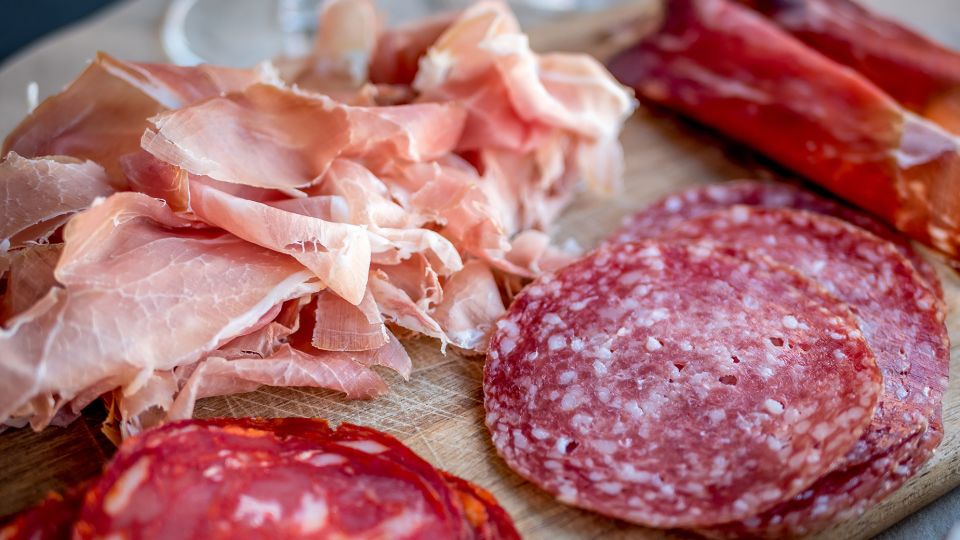
HERE ARE THE ULTRAPROCESSED FOODS YOU MOST NEED TO AVOID, ACCORDING TO A 30-YEAR STUDY
Sign up for CNN’s Eat, But Better: Mediterranean Style. Our eight-part guide shows you a delicious expert-backed eating lifestyle that will boost your health for life.
Eating ultraprocessed foods is associated with an early risk of death, according to a 30-year study — but different foods have different impacts.
Ultraprocessed foods are those that contain ingredients “never or rarely used in kitchens, or classes of additives whose function is to make the final product palatable or more appealing,” according to the Food and Agriculture Organization of the United Nations.
Those ingredients – found in things like sodas, chips, packaged soups, nuggets, and ice cream – can include preservatives against mold or bacteria, artificial coloring, emulsifiers to stop separation, and added or altered sugar, salt and fats to make food more appealing.
Processed meats and sugary foods and drinks aren’t correlated with the same risks as ultraprocessed whole grains, for example, said lead study author Dr. Mingyang Song, associate professor of clinical epidemiology and nutrition at Harvard’s TH Chan School of Public Health.
The study analyzed data from more than 100,000 health professionals in the United States with no history of cancer, cardiovascular disease or diabetes. From 1986 to 2018, the participants provided information on their health and lifestyle habits every two years.
Every four years, they completed a detailed food questionnaire.
The group eating the least ultraprocessed food ate about three servings a day on average, while the highest averaged seven servings a day, according to the study published Wednesday in The BMJ journal.
Those who ate the most had a 4% higher risk of deaths by any cause, including a 9% increased risk of neurodegenerative deaths, the data showed.
Song described the correlation as “moderate,” noting that the connection was not equally strong among all kinds of ultraprocessed foods.
“The positive association is mainly driven by a few subgroups including processed meat and sugar sweetened or artificially sweetened beverages,” he said.
Findings in this study were consistent with hundreds of others in the field, but what makes this one unique is its parsing out of different subgroups within the ultraprocessed food category, said Dr. Marion Nestle, the Paulette Goddard professor emerita of nutrition, food studies and public health at New York University.
Do we need to get rid of all ultraprocessed foods?
Song wouldn’t necessarily advise a complete rejection of all ultraprocessed foods because it is a diverse category, he said.
“Cereals, whole grain breads, for example, they are also considered ultraprocessed food, but they contain various beneficial nutrients like fiber, vitamins and minerals,” he said. “On the other hand, I do think people should try to avoid or limit the consumption of certain ultraprocessed foods, such as processed meat, sugar-sweetened beverages and also potentially artificially sweetened beverages.”
There are also more questions that need to be answered when it comes to ultraprocessed foods.
First, the recent study is strong because of the length of time covered, but it is an observational study. That means that while researchers can observe a correlation, they can’t say that the foods were the cause of the deaths, said Dr. Peter Wilde, emeritus fellow at Quadram Institute Bioscience in the United Kingdom.
Researchers also need to look more at the components of ultraprocessed foods that might be affecting health — whether they be food additives, emulsifiers or flavors — to advise governments and institutions on how to regulate foods, Song said.
Overall diet matters most
Researchers also found that the most important factor to reducing risk of death is the quality of a person’s overall diet, Song said.
“If people maintain a generally healthy diet, I don’t think they need to be like scared or be freaked out,” he said. “The overall dietary pattern is still the predominant factor determining the health outcomes.”
A healthy diet is varied, with as many colorful fruits and vegetables and whole grains as possible, Wilde said.
“If you are worried about food additives, then choose foods that have low levels of additives,” he said in an email. “Just be mindful of the nutritional content of (the ultraprocessed foods) that you do choose to consume.”
It is also important to recognize that foods need to be eaten in balance. Fruit juice contains beneficial vitamins, minerals and antioxidants when consumed in moderation, but too much will have high levels of sugar that may override their benefits, Wilde said.
“This is not black and white,” he said. “A particular food is not either good or bad, it will contain elements of both, and the balance between the two may depend on how much you eat.”
For more CNN news and newsletters create an account at CNN.com
2024-05-08T22:34:21Z dg43tfdfdgfd